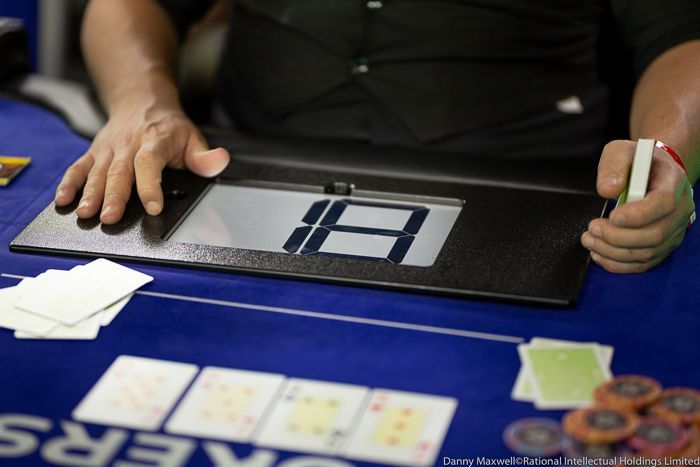PokerNews Point of View: Teaching Dealers to Slide Cards Would Prevent Cheating

Table Of Contents
Recent advances in technology have caused concern about cheating in poker, from public and private cash games to tournaments around the world. There's a method of dealing cards that could provide a remedy.
During an Only Friends podcast episode in August 2024, Matt Berkey told of an alleged cheating ring involving pinhole cameras at the table, a topic that caught the attention of WIRED for a feature story titled "Poker Cheaters Allegedly Use Tiny Hidden Cameras to Spot Dealt Cards."
Less than a year later, poker pro Mike Holtz sounded the alarm on what he believes to be widespread cheating in some Las Vegas poker rooms, including collusion between players who are exploiting the high pitches of some dealers that he says exposes cards.
Banning phones at the poker table is one way to address these new cheating concerns. Another way is for dealers in the US and worldwide to transition from the traditional card pitch to the sliding method that has become popular in Europe.
PokerStars Announces Game Integrity Rule Changes at EPT Barcelona
European Poker Tour Leads the Way
While dealers typically "pitch" cards to players, sliding is a method gaining traction overseas where dealers flick cards across the felt to lower the distance between cards and the table — making it harder for potential cheats to see the bottom of cards.
The PokerStars European Poker Tour (EPT) announced at EPT Barcelona in August 2024 that, among other game integrity rule changes, it would gradually implement the sliding method.
Veteran tournament director Kenny Hallaert told PokerNews at the time that he and other TDs were warned about players using hidden cameras in objects like AirPod cases to get a glimpse of cards.
The 2016 WSOP final tablist said the sliding method ensures "the card that's being dealt to every player is still protected."
The new style of dealing that debuted at EPT Barcelona got attention on social media, with mainly positive responses.
"This is how dealers are taught to deal cards in the UK," one Reddit user wrote. "It's easy to learn, can be very fast, and minimises the chances of exposing a card."

What Do Players Say?
Berkey and Holtz both suggested that dealers in the US move to the sliding method as a remedy for modern cheating methods. Both in a March 12 X video and later episodes of the PokerNews Podcast, Holtz specifically called out Resorts World and dealers at the World Series of Poker (WSOP) Circuit stop at Horseshoe Las Vegas.
Bracelet winner Patrick Leonard voiced a similar concern about Las Vegas poker rooms and advocated for the sliding method.

"In the last 3 months I've told the dealers 20+ times that their pitch is too high and I can see the cards," Leonard wrote on X. "Why do they 'pitch' them and not just slide them? Seems to fix a lot?"
Other players have voiced their preference for pitching, including high-stakes pro and EPT Main Event champion Steve O'Dwyer.
"I’ve been advocating for this change for over a decade," O'Dwyer wrote on X about the EPT's change to sliding.
Psychologist and author Maria Konnikova praised the EPT's rule changes, including the move to sliding, and spoke about her own research into modern cheating methods in an interview on the Life Outside Poker podcast.
Is It Feasible?

Teaching dealers to slide in poker rooms and on smaller tournament circuits seems feasible enough. Implementing the change at bigger festivals like the World Series of Poker, on the other hand, may present its own challenges.
Hundreds of dealers are hired every summer for the WSOP, many of whom are newcomers to poker. Despite the scale and sheer number of dealers required for the WSOP, a gradual phasing in of the sliding method seems like a reasonable objective that would go a long way.
Though it may prove difficult to implement a new dealing method across major poker tours, poker players and tournament directors are in agreement that sliding is the safest way to deal.









